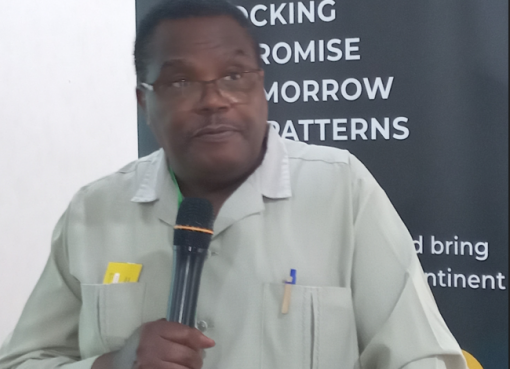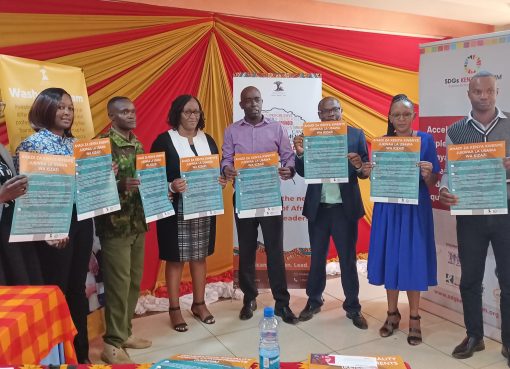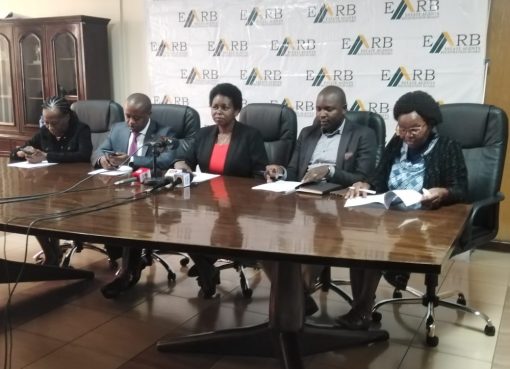Ministry of Tourism and Wildlife Cabinet Secretary Rebecca Miano has fronted research and training as key components in enabling sustainable conservation and management of Kenya’s wildlife resources.
Miano noted that research provides the scientific evidence necessary for the development of species management and conservation area policies that are responsive to the needs of our country, as well as training programmes relevant to equipping a skilled workforce.
The CS was upbeat that Kenya still stands head and neck above its global peers’ wildlife management. adding that the data will inform the formulation of policy and decision-making in the 21st century.
Miano, who spoke on Friday during her familiarisation tour at The Wildlife Research and Training Institute in Naivasha, stated that the institute is strategically positioned to address the changing needs of the conservation sector and to move the country towards a sustainable future as espoused in the global conservation agenda as well as the UN’s Sustainable Development Goals.
“Just as many other sectors globally and regionally, the sector continues to witness many changes that are propelled by shifts in government policies, empowered stakeholders, and an increasingly stringent regulatory environment to do research for the betterment of the sector,” she said.
The CS further said that the Wildlife Conservation and Management Act, 2013 clearly defines the legal, policy, and institutional framework for wildlife conservation and management in Kenya.
“While the management and enforcement functions of the State Department this institution falls under are bestowed on our sister institution—the Kenya Wildlife Service (KWS)—this outfit institute is charged with the dual role of coordinating and conducting wildlife research and training,” she said.
She also noted that she is eagerly awaiting the completion of the joint KWS and WRTI board ad-hoc committee on the transfer of assets and looks forward to witnessing the adoption of its recommendations.
She took note of the new way forward the institute has embraced, as encapsulated in the reviewed Strategic Plan 2024–2028, noting,”financial sustainability is a key message in the new strategic direction.”
“This aligns well with the Kenya Kwanza administration’s desire to wean State Corporations off exchequer support and become net-givers rather than net-receivers,” she affirmed.
“I appreciate the development of a clear roadmap for projects aimed at achieving the institution’s core mandate, increasing revenue generation, and improving the working and living conditions of your staff during the current 2024–2025 Financial Year and in the five-year development period your Strategic Plan covers,” Miano added.
She, however, regretted the recent cut on budgetary support from the Exchequer, which will certainly affect planned and ongoing projects including the removal of asbestos roofing from staff housing, the development of a National Wildlife Database, and the National Wildlife Census, amongst other undertakings.
“That there has been a significant reduction in student numbers due to lack of student financing by the Higher Education Loans Board compounds the prevailing situation further. That notwithstanding, we need to consult widely and, with an open mind, embrace innovativeness to swiftly find feasible alternatives,” she advised.
Miano encouraged the Institute’s Director, Dr. Patrick Omondi, to enhance resource mobilisation efforts to implement the investments required to achieve your overall goals.
She also applauded the Institute for the significant progress they have made in meeting the presidential directive on the National Programme for Accelerated Forestry and Rangelands Restoration, better known as the 15 billion National Tree Growing Programme.
“The Institute exceeded its target in the just-ended reporting period (2023–2024) by more than 200 per cent, having planted about 157,000 seedlings against a target of 50,000. Well done! I look forward to even better performance moving forward,” she applauded.
WRTI, the Naivasha-based Institute inaugurated in 2020 by the then-CS Najib Balala, houses a pool of scientists specialising in wildlife research who collaborate with their counterparts across the world in order to mitigate the current threats facing wildlife.
“The institute also produces a pool of graduates from its training wing with appropriate competency in wildlife conservation and management,” she noted.
The operationalisation of the institute follows the enactment of the Wildlife Conservation and Management Act 2013, which guides the legal framework of its formation.
Present at the event were Wildlife PS Sylvia Musyea, Board Chair, Wildlife and Training Institute, Dr. David Nkedianye, Wildlife and Training Institute, Director and CEO, Wildlife and Training Institute, Dr. Patrick Omondi; and the board of directors.
By Alice Gworo





